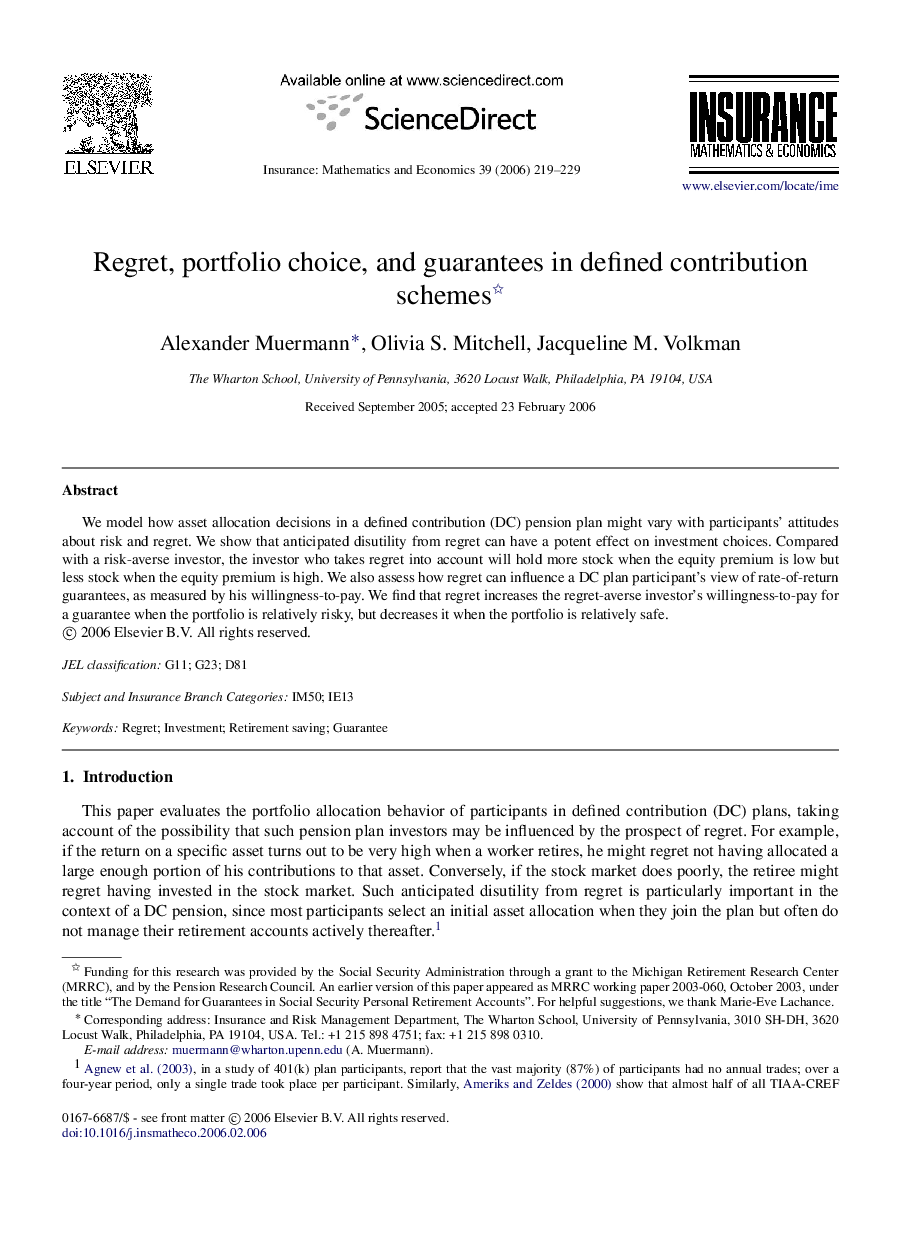| Article ID | Journal | Published Year | Pages | File Type |
|---|---|---|---|---|
| 5077675 | Insurance: Mathematics and Economics | 2006 | 11 Pages |
Abstract
We model how asset allocation decisions in a defined contribution (DC) pension plan might vary with participants' attitudes about risk and regret. We show that anticipated disutility from regret can have a potent effect on investment choices. Compared with a risk-averse investor, the investor who takes regret into account will hold more stock when the equity premium is low but less stock when the equity premium is high. We also assess how regret can influence a DC plan participant's view of rate-of-return guarantees, as measured by his willingness-to-pay. We find that regret increases the regret-averse investor's willingness-to-pay for a guarantee when the portfolio is relatively risky, but decreases it when the portfolio is relatively safe.
Related Topics
Physical Sciences and Engineering
Mathematics
Statistics and Probability
Authors
Alexander Muermann, Olivia S. Mitchell, Jacqueline M. Volkman,
